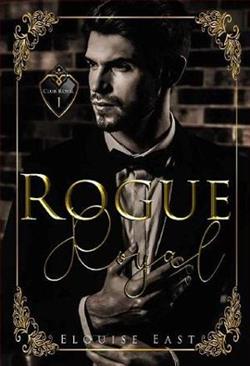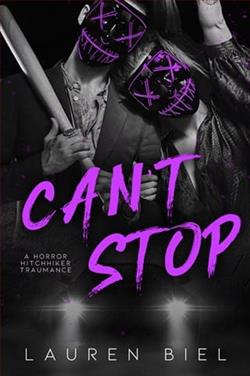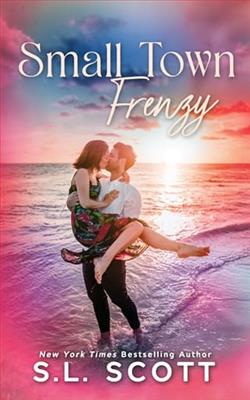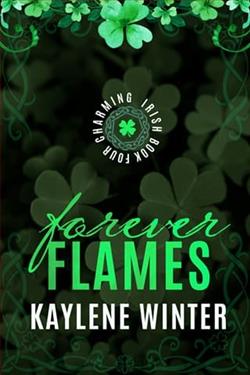Page 162 of It Happened on the Lake
No, she wasn’t calling Arista back unless it was, as Craig Alexander had suggested, to sue the bastard for neglecting the property.
Or unless Joel decided to get nasty.
Just let it go.
“No,” she said aloud, then drained her glass and placed it in the sink with some other dishes. She was still waiting for all the account records. When they arrived, she’d go over the statements with a fine-toothed comb and hand copies to a CPA or financial attorney. Let the lawyers duke it out in court.
She hit the Play button again, and her heart twisted as she heard her daughter’s voice on the recording. “Hey, Mom. Sorry I missed you again. But it turns out I have to stay in Eugene longer than I thought. Nothing big happening, just have plans with some friends, but I thought I’d drive up next week. And, like I said, see Grandpa, too. Look, I’ve got class in twenty minutes, so call me back on my pager and let me know you got this message. Okay?”
Harper phoned her daughter’s pager and hoped Dawn would call her back.
Rubbing her hip, she hoped the cable company could run a connection to the tower and was reminded of Gram’s philosophy: “Where there’s a will, there’s a way, and if there isn’t a way, then there’s always money.”
Usually Harper didn’t subscribe to Gram’s ideology, but she was beginning to see some merit to it as she made herself a snack of cheese and crackers. She grabbed a Diet Coke from the refrigerator and popped the top. After taking a long swallow, she considered adding a shot of rum to the can. Why not? It was after five and she’d worked all day—but decided against it. Since the first few days when she’d landed back in Almsville, she’d tried to avoid too many drinks and too much fascination with watching what was going on across the lake. The snifters and crystal decanters were tempting, as were the multiple telescopes and pairs of binoculars on each floor, but she’d resisted.
For the most part.
After bolting down cheese and crackers, she told herself to get busy.
Today she’d tackle Gram’s room, but as she passed through the parlor, she saw lights burning across the lake at the Hunt home. In the upstairs bedroom. Cynthia and Tom’s room.
She thought of Cynthia Hunt and the deadly inferno on the water. The woman had seemed hell-bent to kill herself in a horrific and agonizing way.
Why, she wondered again, touching her chin that still itched where her stitches had been, a constant reminder of that awful night,Why was Cynthia out in the middle of Lake Twilight?
Because her life was crumbling, her mind deteriorating with the sadness and tragedy of her life.
Once Cynthia had been a willowy blond, a smiling mother of two who sometimes substitute-taught at the high school. Then had come the tragedies surrounding her family and Lake Twilight.
Decades-old guilt seeped into her blood, and she tried to disregard it. Nothing could change the past, as her grandmother had always claimed. Her voice rang in Harper’s ears even now. “No use crying when you fail or fall down, Harper-dear. Just learn from it. What’s done is done. Pick yourself up, dust yourself off, and step forward. Yesterday’s gone, but tomorrow holds a whole new day of promise.”
She walked into Gram’s room and imagined her grandmother as she’d last seen her, unmoving in the bed, her skin a sickly gray color, her eyes open and fixed. “I’m so sorry,” she whispered and picked up the rag dolls, intent on throwing them into the trash.
But she hesitated, her throat closing as she glanced down at Raggedy Ann and Raggedy Andy with their faded red hair and broken smiles and round eyes. Andy in blue pants and a checked shirt, his bow tie askew, Ann wearing a pinafore over striped socks.
“Oh, Gram.” Harper didn’t have the heart to throw them away. Not yet. Instead, she put them onto the bed, pressed into the pillows just as Gram had always placed them—without Maude wedged between the pair. “Another day,” she promised, and looked around the room.
She took a seat at Gram’s dressing table and remembered her grandmother brushing Harper’s hair when she was still in grade school. Gram would stand behind her, meeting Harper’s gaze in the oval mirror. “Such pretty hair,” she would say as Harper fidgeted on the stool. Gram had always let Harper wear pieces of her jewelry while Harper sat trying not to cry as Gram struggled with the knots and snarls that were ever-present in her long hair.
“If you weren’t such a ruffian, your hair would stay nice,” she’d say, as Harper had spent most of her days climbing trees or riding her bike or playing war with Evan, chasing him and some of the cats through the myriad of trails that crisscrossed the island. “Maybe we should just cut it. A buzz-cut, how about that?” Gram had asked once, pausing to take a drag from her cigarette burning in the ashtray on the dresser. Harper had glanced up sharply, catching Gram’s gaze in the reflection and seeing the mischief in her eyes through her smoke.
Harper recalled the long strand of pearls and matching clip-on earrings she loved to wear and how Gram had confided, “Those were your mother’s favorite, too, when she was a little girl.”
Now she turned toward the mirror, remembering her visage at six, all dimples and crooked teeth, and today—well, she was healing but still looked bad. Tomorrow, she might get up, wash her hair, and even add a touch of makeup, join the real world.
She opened several drawers in the dressing table and was surprised to find a bottle of Chanel. A twist of the cap conjured up more memories of Gram. “My sweet Number 5,” she had called it. Harper studied a box of talcum powder along with bottles of makeup and tubes of Gram’s favorite lipsticks, all still arranged neatly. She picked up a tube of Revlon’s Cherries in the Snow, Gram’s favorite, and opened the tube to see it was half used.
After replacing the tube, she tried to open one of the bottom drawers, but it wouldn’t budge. She tugged harder before she realized that both bottom drawers, on either side of the small desk area, had locks. The one on the left opened smoothly, while the one on the right didn’t budge. She found Gram’s key ring and located several small keys. On Harper’s second attempt, she was able to unlock the drawer, and it slid out with some difficulty. “So what’ve you got in here that you want locked up?” she asked as she pulled out a stack of personal letters to discover another set of keys, two of the attached keys bearing the Chevrolet logo. The keys to Gramps’s Corvette, she guessed. A smaller one, probably for the gun cabinet in the garage, and several more that she couldn’t identify but would try out.
The last item, wrapped in an embroidered hankie, was a small glass jar with a screw-off lid, in which a dozen tiny holes had been punched. And inside the glass itself, the bodies of six desiccated bald-faced hornets lay crumpled, their small bodies curled in death.
She eyed them with a sense of revulsion and curiosity.
Why would Gram have kept them, hidden away with her secret treasures?
Why would anyone?
Perfume, keys, makeup, jewelry, and hornets.















